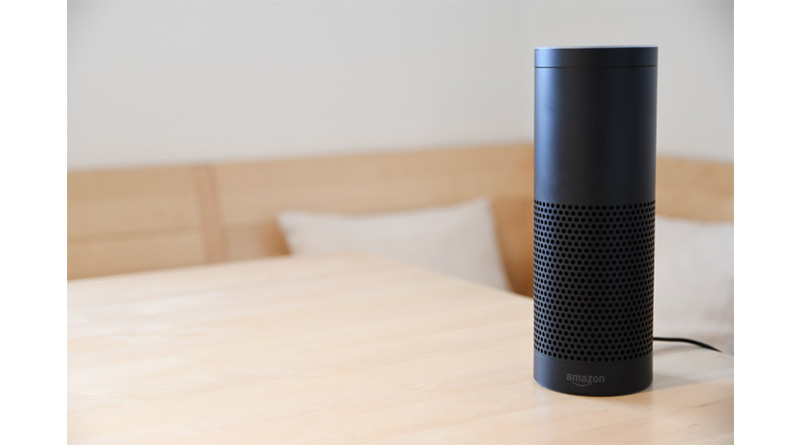Alexa, Can You Support People With Care Needs?
The latest survey by review site carehome.co.uk reveals one in four (25%) care staff say their care homes use smart speakers such as Alexa or Echo to assist or entertain residents.
The poll of 2,611 care home owners, managers and staff, carried out in September 2019, also revealed just over half (52%) of care home staff think care homes should use Artificial Intelligence (AI) such as smart speakers to help care for residents.
Sue Learner, editor of carehome.co.uk, said: “Devices such as Alexa and Echo have opened up a whole new world for people with limited mobility. They can now regain some of their autonomy using their voice to control their environment and operate light switches and temperature and select certain music and call their friends and family.
“The danger is of course with many care homes struggling to recruit staff that this could lead to an over-reliance on artificial intelligence. But used appropriately, devices such as Alexa have the potential to enrich and enhance so many care home residents’ lives.”
Belong Crewe care village in Crewe purchased an Alexa device for each of its six households ten months ago. Amie Adams, lead senior support worker at Belong Crewe said: “The devices are an integral part of the village, which we use daily to provide engagement and stimulation for our residents.
“Since incorporating the use of Alexa into daily life we have noticed a marked benefit in the wellbeing of a number of residents. We can provide instant calming and relaxing music to make customers feel at home and comfortable.
“Alexa also creates opportunities to reminisce. For example, our customers might ask to list the best beaches in 1940, where they used to go on holiday, or ask for the weather in their childhood town.”
Meta Kundoeffer-Birch, resident at Belong Crewe said: “I think the Alexa device is great. We all love to listen to music around the household every day, especially Elvis, he cheers all the ladies up! I think many more care settings should incorporate these devices.”
Residents at Sunrise of Southbourne care home in Bournemouth use Alexa to give them more autonomy.
One of their residents, Alan Cox, who has age-related macular degeneration uses Alexa to help him with his daily routine. He described the technology as ‘invaluable’ to maintaining his independence.
He uses Alexa to turn off the lights from the comfort of his bed and when the morning alarm starts ringing, Alan doesn’t have to feel around for the snooze button, he simply tells Alexa to “stop” to turn it off. He also uses Alexa for entertainment.
Lee Mussell, director of Community Relations at Sunrise of Southbourne, said: “Residents like Alan who live in our community are proof that age is no barrier to using the latest technology and we look forward to seeing further tools on the market that can help improve the assisted living experience.”
However, a recent report by technology think tank, Doteveryone, found devices such as Alexa left care home residents ‘often deeply distressed by an unfamiliar robotic voice reminding them to take medication’. It said they “were often left confused by new gadgets and fearful they would replace contact with human carers.”
The think tank’s report, Better Care in the Age of Automation, argued technology had a vital role in improving the care system but should not lead to ‘naive enthusiasm’ that gadgets can replace human care.
Martin Green, chief executive of Care England, which represents independent care homes, said: “Many care homes are now using technology such as Alexa to improve residents lives and to give them more autonomy and independence.
“There is undoubtedly a place for new technology within the care sector, but we must also remember that care is a relationship-based service and technology can never replace human contact.”
Martin Spooner, learning and development manager at Train for Care, said: “I am all for the integration of AI in care homes providing it is the icing on the cake and not the filling.
“AI can be used to control lights, heating, provide entertainment or share reminders, however the person needs to know where the voice is coming from and what the interaction is about. It cannot be a random ethereal voice adding to a person’s anxiety and confusion.
“AI cannot provide the warmth of human contact, it cannot make a person’s tea ‘just the way they like it’, or hold their hand or gossip.”





